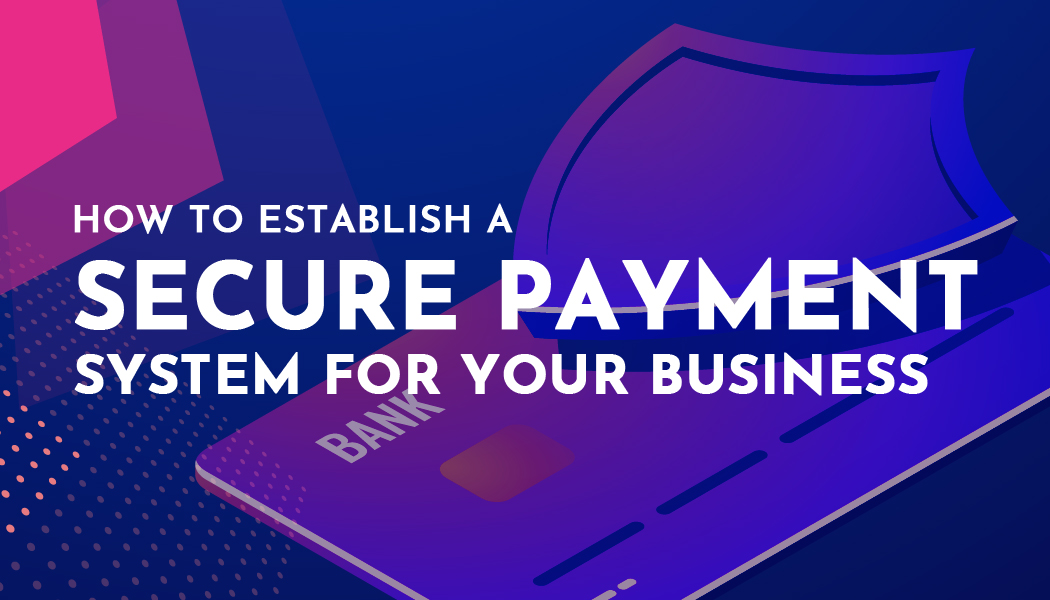How to Establish a Secure Payment System for Your Business
eCommerce stores are growing at a rapid pace all over the globe, but data theft is also growing exponentially. Security has become the forefront concern of all businesses. Most of the eCommerce website has the option for online payment for the purchased products. With people leaning towards online banking and shopping, it is necessary to safeguard the payment system as the internet is susceptible to new threats. Below are some of the best practices to establish a secure payment method for your business.
Install SSL Certificate in Your Website
An SSL certificate is vital for your business. To ensure your website security, it is mandatory to install an SSL certificate on your website. Generally, website owners ask the basic information of the customers to buy the product or discuss the services they provide. An SSL certificate is installed to safeguard this data, which creates a safe connection between the server and the browser. Adding an SSL certificate reduces the chances of data theft and increases the SEO rankings. Thinking about the types of SSL certificate, which one you can choose for your business. For example, Wildcard SSL certificate secures the main domain and its sub domains. But the primary question is when to use wildcard SSL certificates? It's quite simple if you have a website with multiple subdomains, a wildcard SSL certificate is installed to secure main domain as well subdomains with a single certificate. So, if your website has more than two subdomains, install wildcard SSL certificates to establish a secure connection.
Follow PCI DSS Compliance
PCI DSS stands for Payment Card Industry Data Security Standards, which is the best practice to ensure secure payment. PCI is a set of rules or guidelines compiled by the PCI security standards council to make sure sensitive data is handled safely. For any eCommerce store, online payment gateway is a crucial step and is beneficial for businesses. Since customer data, credit card information, and other financial data are transferred over the web. It is essential to secure the eCommerce payment system and ensure it is PCI DSS compliant by encrypting data during transmission, avoid storing user data, and keep your system up to date. Complying with PCI DSS adds an additional layer of security in the network and establishes trust among the users.
Use Multi-factor authentication (MFA)
Multi-factor authentication is another way to reduce fraudulent online purchases in eCommerce stores. Nowadays, Identity theft has become the most happening thing. Customers fear data exploitation or misuse of their sensitive data like payment information. It can be avoided using multi-factor authentication. Multi-factor authentication means implementing more than two types of the authentication process. It is also called two-factor authentication. Generally, a password is the first authentication process a user enters; apart from that, a unique code or one-time password is sent to the user's smartphone for further authentication. Also, another type of authentication is biometrics like fingerprint or voice. Adding multi-factor authentication will secure every login and notify the user in case if the account is logged in from unfamiliar devices.
Collect the Customer Data you need
When a customer purchases the product or service through an eCommerce platform, make sure to collect the data that is required. The information gathered should be specific and relevant to the sale of the product. Confidential information such as social security number, phone number, and address should be protected privately, which otherwise would lead to violation of privacy laws. Details such as bank account details like credit card numbers, CVV codes should be encrypted and stored in the database through a secure network. Using the customer's details or sharing them with the third party without the customer's concern would lead to hacking data issues or violation of privacy policy. On collecting the data, the data storage must be encrypted in a way that it cannot be hacked through any network as this would improve the trust and security of the customer while sharing the data. A secure direct debit provider like EzyPay can ensure this level of data protection.
Data Encryption
Encrypt the user's data to protect the confidentiality of the users. Though installing an SSL certificate on a website provide end to end encryption, additional data encryption is another way to reduce data thefts and offer secure online transaction.
Conclusion
In this digital era, online security matters so much. Customers have started shopping online but fear their financial data might get stolen. They have started looking for a secure online transaction, and it is the business owner's responsibility to provide a secure payment gateway. Follow the best approach and implement it for a safe online transaction in your business.




